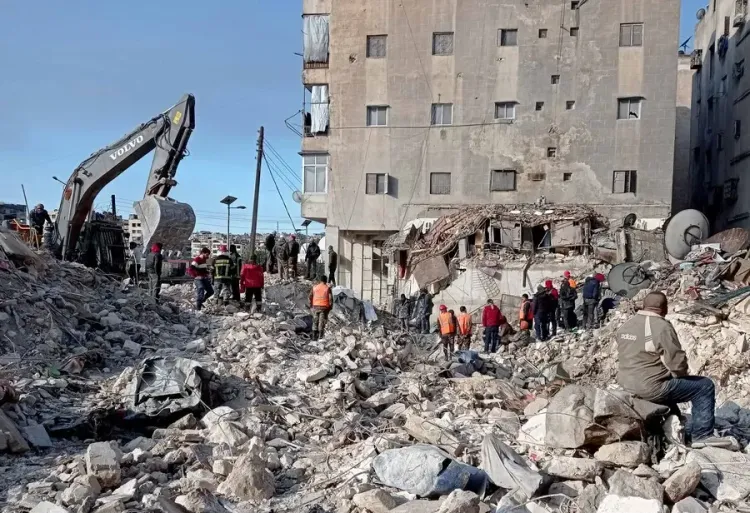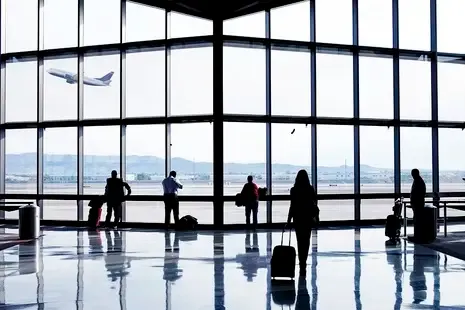Did Saudi Arabia and Qatar Commit $89 Million to Aid Syria's Public Sector?

Synopsis
Key Takeaways
- Saudi Arabia and Qatar are providing 89 million US dollars to support Syria.
- The funding focuses on public sector employees and essential services.
- The initiative is in partnership with the UNDP.
- There is a significant humanitarian crisis in Syria, with 16.7 million people needing aid.
- Approximately 850,000 refugees have returned since 2024.
Riyadh, Sep 25 (NationPress) — Saudi Arabia and Qatar have unveiled a collaborative financial initiative amounting to 89 million US dollars aimed at supporting Syria, as reported by Saudi state media. This funding, which will be facilitated through the Saudi Fund for Development and the Qatar Fund for Development, is intended to assist public sector employees in Syria for a duration of three months. The goal is to ensure the uninterrupted provision of vital services and to strengthen government budget allocations, according to Xinhua, citing the Saudi Press Agency.
The aid, which will be executed in partnership with the United Nations Development Program (UNDP), seeks to improve sustainable livelihoods and foster inclusive economic recovery. Officials noted that this initiative will also enhance systems, increase financial sector inclusivity, and contribute to long-term development objectives in Syria.
Earlier this month, the Saudi Fund for Development allocated a grant to deliver 1.65 million barrels of crude oil to Syria. Additionally, in August, Saudi Arabia finalized an agreement and six memorandums of understanding with Syrian authorities concerning various energy sectors during the Damascus International Fair.
Recently, the UN Office for the Coordination of Humanitarian Affairs (OCHA) in Syria cautioned that millions of Syrians could face perilous conditions unless international donors increase funding for essential aid programs.
Joseph Inganji, head of the OCHA Syrian office, informed Xinhua in Damascus that "if we don't receive the funding, it means children and women will perish, as we lack the resources to support them."
As per Inganji's statements, 16.7 million individuals across Syria currently require humanitarian assistance, with 8.2 million in urgent need. The UN is aiming to raise 3.2 billion US dollars to respond, yet has only received 15 percent of this target thus far.
Inganji expressed particular concern for southern Syria, where renewed tensions in Sweida province in July have led to a new wave of displacement, affecting neighboring Daraa and the Damascus countryside. The combined impact of violence and displacement in Daraa, Sweida, and rural Damascus has displaced approximately 430,000 people. "The situation demands immediate attention. They are receiving support from the humanitarian community," he stated.
While underscoring the necessity for immediate aid, Inganji emphasized that Syria's long-term stability hinges on solutions that lessen reliance on assistance. "Despite providing aid every day, it is not a permanent fix. We need a sustainable solution," he reiterated.
Following the fall of former President Bashar al-Assad in December 2024, around 850,000 Syrian refugees have returned from neighboring countries, as reported by the UN High Commissioner for Refugees.
A significant funding gap is obstructing efforts to facilitate these returns, and many returnees confront dire conditions, including destroyed or severely damaged housing, limited access to basic services, and scarce employment opportunities.









